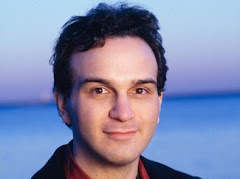We witnessed Matthias Goerne's debut in a Mahler premiere at DFP of Des Knaben Wunderhorn on 20 November 2016. Since the inception of the hall nearly 20 years ago, we had seen repeated performances of the Mahler symphonies but have never heard Des Knaben Wunderhorn before. It was an inspired stroke of concert programming.
Goerne offered a selection of 7 songs from Des Knaben Wunderhorn. Opening with Rhinelegendchen (Little Rhine Legend), Goerne’s interpretation had a jolly agility. His tone and timbre darkened significantly for the second haunting and grim song, Wo die schönen Trompeten blasen (Where the Fair Trumpets Sound) with its off-stage trumpet scoring. The third song (Das irdische Leben) (The Earthly Life) in which a starving boy keeps asking his mother for bread, displayed the plethora of emotion that Goerne mined from these deceptively simple texts. His interpretation portrayed the boy's anguish and the hopeless desperation of his mother.
Mahler used Urlicht (Primal Light), the fourth song in this concert, as the penultimate movement in his Second Symphony. Goerne exposed the emotional depth of the music and communicated directly with the audience. It also made sense to follow on with the fifth song in the concert, which was the basis of the third movement of Mahler's Second Symphony. Goerne gave us a humorous portrayal of "Des Antonius von Padua Fischpredigt" (St Anthony’s Sermon to the Fishes), a fairly overt allusion to and critique of various religious convictions.
Goerne also gave us a memorable performance of the sixth song, Revelge (Reveille). Goerne's bewildering range of expression made this a performance to remember. His powerful and variegated voice from a soft liquefied piano to a massive roaring forte allowed him to revel in this sinister song with much expressive detail. Goerne's devastating performance of the last song Der Tamboursg’sell (The Drummer Boy) crowned this sovereign performance by Germany's greatest baritone singer post-Dietrich Fischer-Dieskau.
In the second half, Tourniaire led a reasonable performance of the First Symphony. In the first movement, I heard some decent good soft playing that was marred by violent changes from a moderate tempo for the slower portions to exceptionally swift speeds for the louder bits. These wide changes felt quite jarring indeed and the transitions lacked mystery. I felt that the conductor was not working towards Mahler's marking of the movement of Langsam, schleppend (Slowly, dragging) Immer sehr gemächlich (very restrained throughout) as well. The tone of the orchestra was also often harsh and unyielding, often in contradiction with Mahler's own dreamy description of "the awakening of nature at the earliest dawn".
In the second movement, Tourniaire continued with his hectoring approach. The Scherzo portion was able to take this approach a bit better than the first movement, though he underplayed the "lift" needed in the string parts on the third beat slurs with dots over the second note of the slurs. The Trio fared worse again as Tourniaire failed to overplay the obvious glissandi in the string parts and thus robbed this section of the inherent charm and Austrian "Gemütlichkeit".
In the third movement, I was glad that the conductor chose to play the opening with a single double bass rather than a current questionable orchestral practice of performing the minor mode "Frère Jacques" round with the whole double bass section. However, principal double-bassist Wolfgang Steike's opening solo was slightly disjointed and not as smooth as Mahler's marking of 1 slur/phrase per bar. Another bone of contention was that the brass counterpoint overpowered the main melody in the woodwind tune in the klezmer band section.
The fourth movement (Dall'inferno al Paradiso in Mahler's original descriptive programme notes of the premiere performance) took to Tourniaire's hectoring approach best. The fire and brimstone portions were played daringly, whilst the more melodious portions had the requisite yearning feeling. The finale and coda were stunning in their execution and garnered a good ovation.
All in all, Tourniaire's interpretation of the Mahler First Symphony is still a young conductor's work in progress and does not reach the lofty interpretations I heard in the last few years like the MPO under Rafael Frühbeck de Burgos, and the Berlin PO under Gustavo Dudamel (in Berlin) and Sir Simon Rattle (in Singapore).
Subscribe to:
Post Comments (Atom)

















































No comments:
Post a Comment